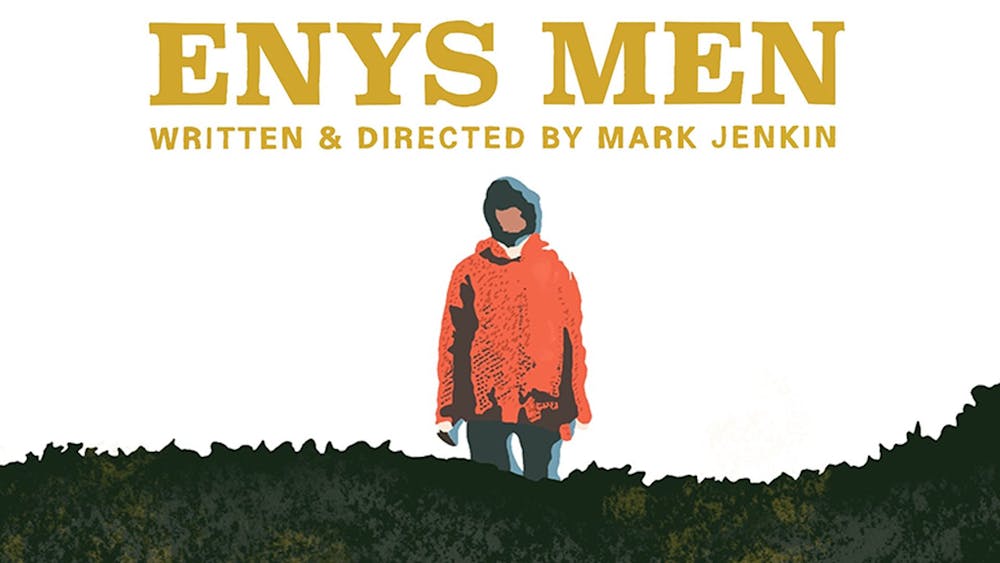Early on in “Enys Men,” an experimental folk horror film from director and writer Mark Jenkin, astute viewers will quickly surmise that the vibes on the central island are more than a little askew. Before anything overtly menacing has even taken place, ominous overhead shots of the terrain and a droning score clue the audience into a deep sense of foreboding menace.
The film’s protagonist — played by Mary Woodvine and unnamed except for in the end credits as “The Volunteer” — is a botanical researcher of some kind, conducting her research on an otherwise uninhabited island off the Cornish coast. As her isolation heightens over the course of the film — leading to a sense of extreme paranoia — the central character’s grip on sanity gradually erodes as she is confronted with a series of supernatural happenings that could be real, entirely imagined or some unsettling mixture of both.
From beginning to end, the movie’s plotting remains boldly abstract — filtering the protagonist’s growing isolation through a medley of surreal horror imagery as well as tantalizing visions of both her past and potential future. This elliptical approach is commendable on paper and instantly evokes a British horror classic of the past, director Nicolas Roeg’s estimable “Don’t Look Now.”
Unfortunately, Roeg’s nightmarish masterpiece was made with considerably more skill than Jenkin’s befuddling chiller. “Enys Men” quickly runs into the limitations of its opaque approach.
While the film’s stubborn refusal to conform to conventional narrative shape is theoretically admirable, one quickly finds themselves grasping for any sort of concrete emotional foundation to latch on to.
It is not impossible for a film to coast on atmosphere and imagery if those aforementioned qualities are transfixing enough to carry the weight of a feature film. But too few of the sights and sounds Jenkin conjures up here are indelible enough to shoulder that considerable burden, and the movie quickly grows tiresomely repetitive.
There are, to be sure, some formal pleasures to be had. Some specific visuals lodge themselves in the mind, ranging from an ultra-foregrounded close-up of the protagonist’s knuckle to an unexpected glimpse of a crudely imagined sexual encounter.
Jenkin — who also lensed and scored the film — makes intermittently captivating use of his 1.33 to 1 aspect ratio, shoving items into unorthodox corners or halves of the frame. His choice to shoot the movie on deliberately wearied 16 millimeter film — effortlessly evocative of the picture’s 1973 setting — also gives the film an endearingly retro stylization.
This antiquated aura is only enhanced by the intentionally blatant deployment of post-synchronized sound, as well as the alternately destabilizing and pleasurable editing choices. If one is predictably enamored with nimble match cuts, they will likely find a good deal to enjoy here.
Such considerable technical pleasures remain a small distraction, though, from a film content to spin its wheels as much as this one does. While the movie’s surface is sporadically transfixing, its lack of substantive dramatic ideas or tonal variation quickly catches up to it. At times, it almost feels like an aesthetic idea in search of a movie.
In his reach for the sublimity of Roeg’s aforementioned horror masterpiece, the director lands somewhere closer to the stiflingly boring terrain of director Alex Garland’s oppressively one-note “Men.” As a stylist, Jenkin clearly has an interesting eye, one that will prove interesting to see develop over the course of his subsequent features. One should just hope, then, that he soon settles on a script engaging enough to match some of his formal shrewdness.







